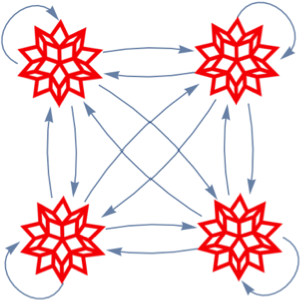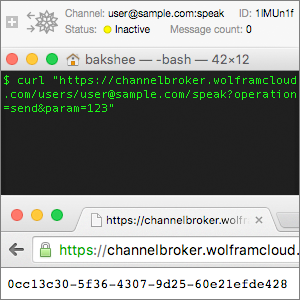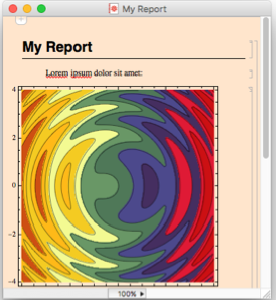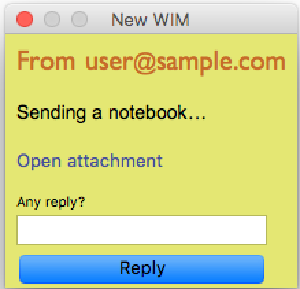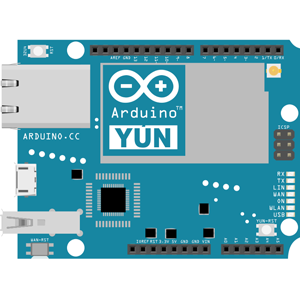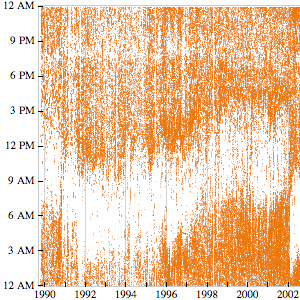Mensajería instantánea con contenido arbitrario
En una sesión de escritorio, cargue un paquete que cree un canal de demostración de mensajería instantánea ("WIM") y comience a escuchar en él.
In[1]:=
Needs["DemoChannels`WIM`"]Cree su canal WIM y comience a escuchar en él.
In[2]:=
channel = CreateWIMChannel[]Out[2]=
In[3]:=
listener = ChannelListen[channel]Out[3]=

Envíese a usted mismo un WIM, y note su mensaje en un nuevo cuaderno de diálogo.
In[4]:=
ChannelSend["WIM", "Hi there."]Out[4]=
Out[5]=
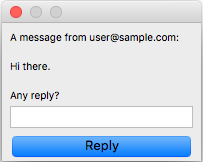
Adjunte el actual cuaderno a un mensaje.
In[6]:=
ChannelSend["WIM", {"Sending a notebook.", InputNotebook[]}]Out[6]=
Out[7]=
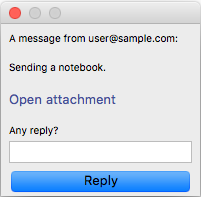
Otros usuarios pueden enviarle un WIM incluyendo su canal completamente calificado.
In[8]:=
yourWIM = $WolframID <> ":WIM"Out[8]=
In[9]:=
ChannelSend[yourWIM, "hello"]Out[9]=
O su URL de WIM.
In[10]:=
listener["URL"]Out[10]=
In[11]:=
listener["URL"];
ChannelSend[%, "another message"]Out[11]=
Cualquier persona también puede enviarle un mensaje desde un navegador web (o cualquier otro cliente HTTP) creando una solicitud de HTTP al siguiente URL.
In[12]:=
URLBuild[listener["URL"], {"operation" -> "send",
"Message" -> "yet another message"}]Out[12]=
In[13]:=
URLBuild[listener["URL"], {"operation" -> "send",
"Message" -> "yet another message"}];
URLFetch[%]Out[13]=
Para responder a los mensajes entrantes desde otros usuarios, autorice la comunicación en los canales de usuario.
In[14]:=
Unprotect[$AllowExternalChannelFunctions];
$AllowExternalChannelFunctions = True;Deje de escuchar y restaure la configuración de seguridad.
In[15]:=
RemoveChannelListener[listener]Out[15]=
In[16]:=
$AllowExternalChannelFunctions = False;
Protect[$AllowExternalChannelFunctions];